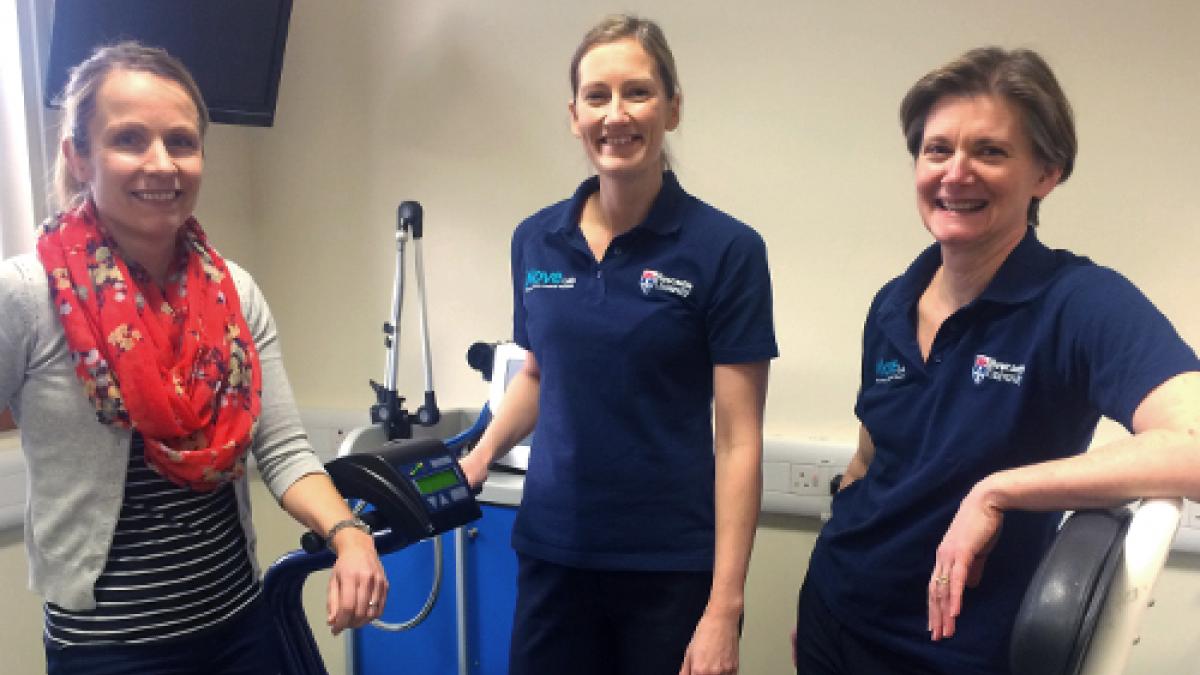Three members of a physiotherapy team have achieved academic success by receiving doctorates – and two of them have gained prestigious research awards.

Successful research physios (L-R) Kate Hallsworth, Sarah Moore and Jane Newman
Sarah Moore, Kate Hallsworth and Jane Newman all completed their PhDs while working at Newcastle University’s MoveLab.
The trio’s research has focused on the effects of exercise and physical activity on different chronic conditions and each has had their work published in peer reviewed journals.
In addition Dr Moore and Dr Hallsworth have been awarded clinical lectureships from the National Institute of Health Research (NIHR).
The awards are part of NIHR and Health Education England’s integrated clinical academic programme for non-medical healthcare professionals.
NIHR awards are designed to support award winners, by enabling them to divide their time equally between clinical and academic activities.
Each award winner receives funding for their research, 50 per cent of their salary and an overseas research visit.
Dr Moore, team lead at Newcastle University’s institutes of neuroscience and ageing, will start her lectureship in April.
She told Frontline the post will allow her to work clinically in stroke care at Northumbria Healthcare NHS Trust, and also conducting research with Newcastle University’s stroke research group and the MoveLab.
‘My research programme will explore the provision of a range of tools to enable health professionals to effectively support people with stroke to be more physically active,’ she said.
Liver disease
Her colleague Dr Hallsworth began her five-year NIHR clinical lectureship in 2015.
It followed the completion of her PhD research into the effects of exercise and physical activity in non-alcoholic fatty liver disease (NAFLD). Dr Hallsworth’s study included a randomised controlled trial that investigated the effects of resistance exercise on levels of liver fat and metabolic control in patients with NAFLD.
She told Frontline her clinical lectureship is being used to continue her work into ‘how best to translate the evidence for physical activity/exercise into clinical care in NAFLD.’
Mitochondrial disease
Meanwhile Dr Newman recently completed a PhD, which focused on assessing the function and gait of patients with mitochondrial disease [a rare neuromuscular condition] and the effect of exercise intervention.
‘I was able to demonstrate that patients with mitochondrial disease were less able to perform certain functional and tasks and their gait was impaired in a selective manner,’ she said.
‘Hopefully this work will lead to further knowledge about these conditions and help in the development of more appropriate interventions.’
Number of subscribers: 1



































